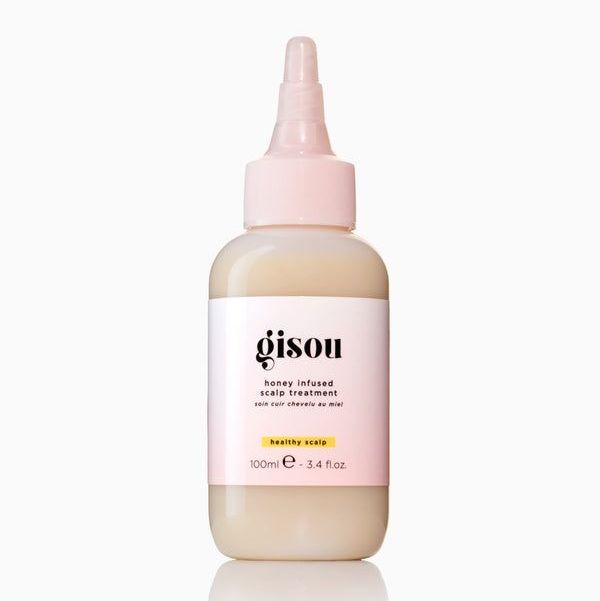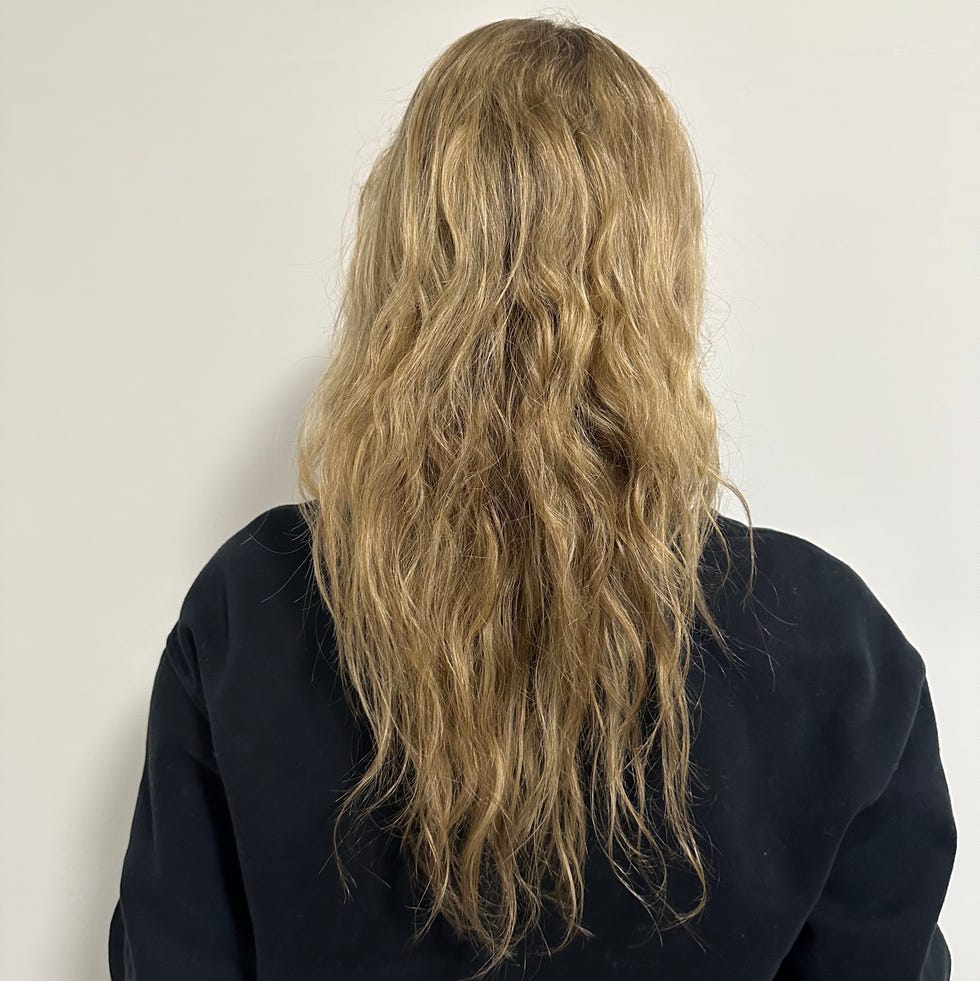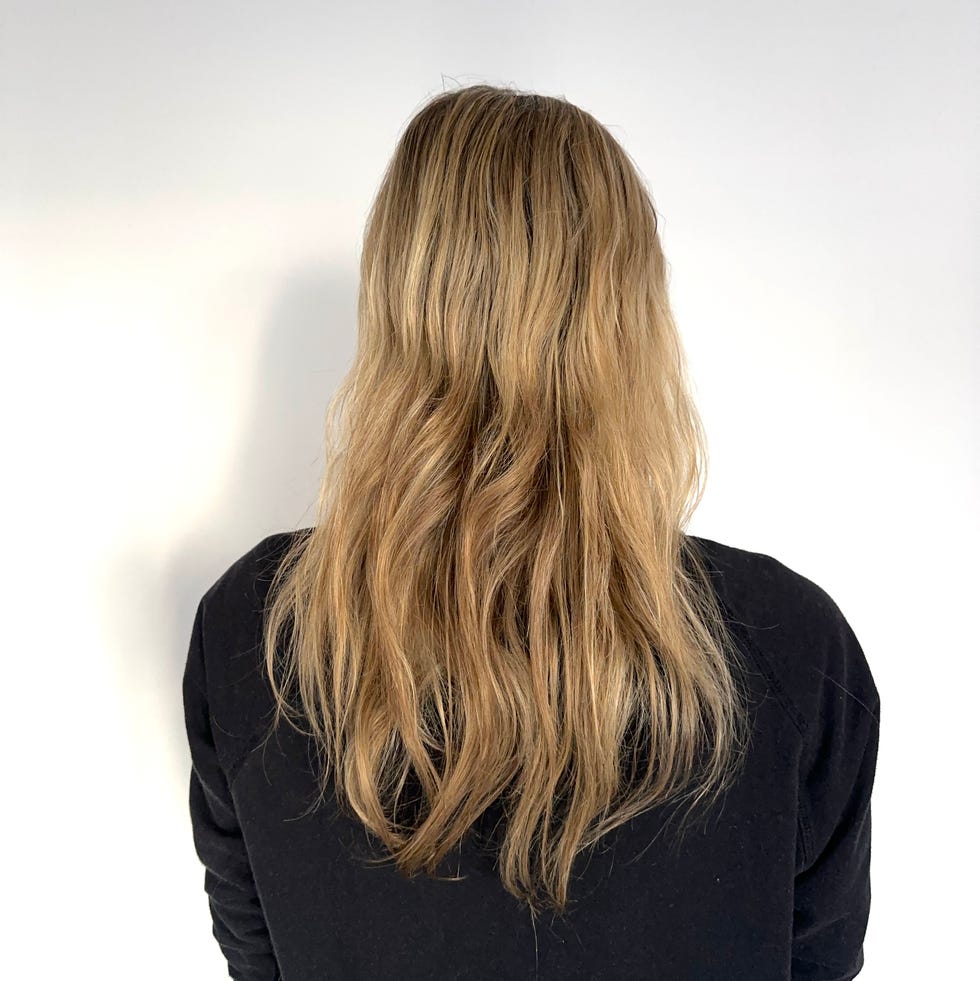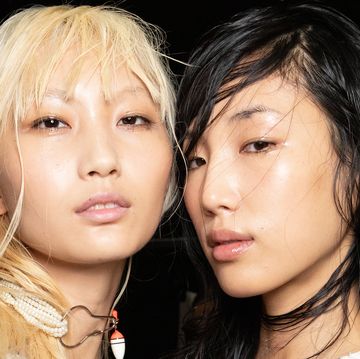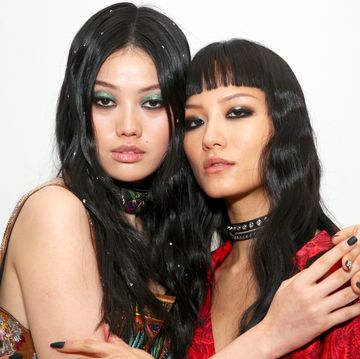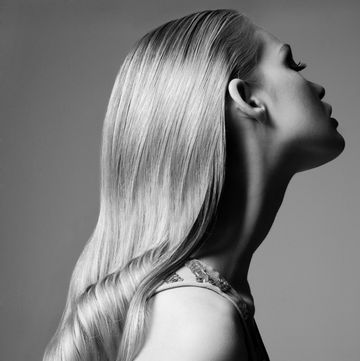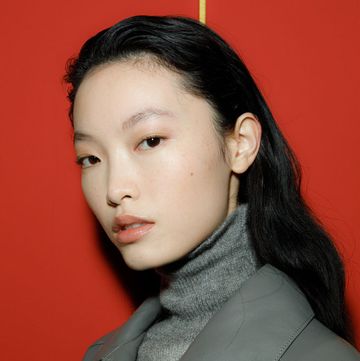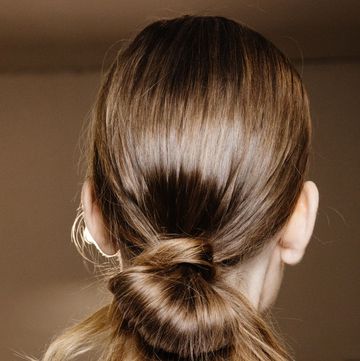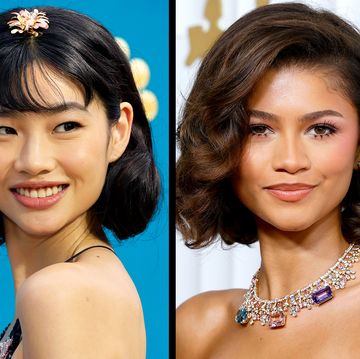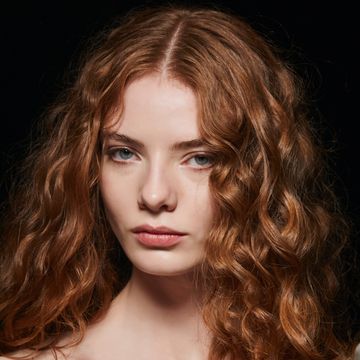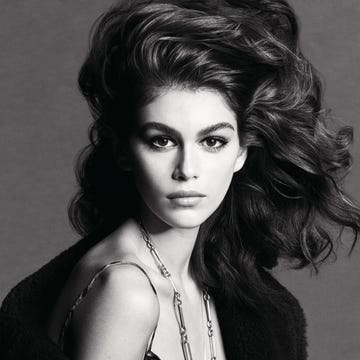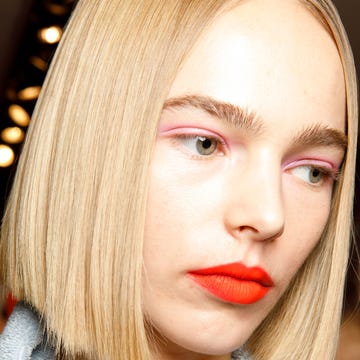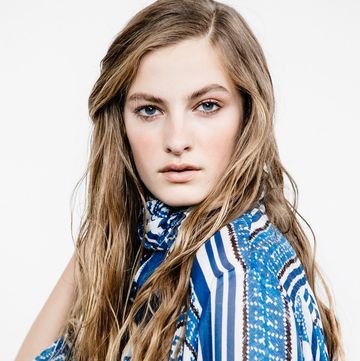Social media influencers are building more than a following these days—many have debuted their own beauty brands, too. Take Huda Kattan, who currently has 52 million Instagram followers, 4.1 million YouTube subscribers and launched a successful cosmetics company including a makeup brand and a skincare brand. Another impressive influencer turned entrepreneur? Negin Mirsalehi, founder and owner of internet-viral haircare line Gisou.
The brand’s products star honey sourced from the Mirsalehi family bee farm (Negin herself is among the family’s lineup of beekeepers) and claim to unlock shiny, healthy, and nourished hair. According to research, honey is rich in vitamins and amino acids that can help moisturize strands and repair damage.
After seeing Gisou pop up left and right on my TikTok FYP, I figured it might be worth trying—especially since I regularly get highlights and have fine, thin hair that tends to be dry. For the past two weeks, I’ve been using nothing but my go-to purple shampoo and Gisou’s products—including a shampoo, conditioner, hair mask, hair oil, and scalp treatment—and have been impressed with the way my mane now looks and feels.
How I Tested
I washed my hair using the shampoo two to three times per week, conditioned almost every day, and followed the instructions for both the hair mask and scalp treatment. I applied the hair oil after styling my hair or after letting it air dry.
The mask is recommended to be used up to two times per week, on dry hair or towel-dried hair between washing and conditioning. When applied to damp hair, the mask only needs to sit for four to seven minutes before being rinsed out. I used the mask two times a week since my strands are particularly parched, and I tested out the formula on both damp and dry hair to see how it performed in both instances.
The scalp treatment was a new step in my routine. The leave-in treatment is designed to moisturize the scalp and thus encourage healthy hair growth. It’s meant to be applied overnight directly to the roots when the hair is dry—up to two times per week if you have scalp irritation or just two times per month as a preventative treatment for redness, itchiness, and flakes. I opted for two times a week, as the winter weather in New York means my already dry, flaky scalp needs all the extra help it can get.
The Results
The clear winner for me was the hair oil. Because my hair is thin and dry, I’ve struggled to find an oil that’s lightweight enough to coat my strands without weighing them down. Whether used on my natural curls or a bouncy blowout, the oil boosted shine, reduced frizz, and added a softness to my hair I’ve yet to experience from other oils. It’s on the pricey side for a hair treatment, but since I only needed about half a dropper of product during each use, the full-sized product should last a while in my beauty cabinet.
The shampoo lathers into foam fairly quickly and left my hair feeling squeaky clean. It was easy to wash out and didn’t irritate my dry scalp.
The conditioner was my most-used product next to the oil, and it was easy to work into my hair and wash out. On days I conditioned, especially post-wash, I noticed a significant difference in how soft my hair was compared to results from other conditioners I’ve used. I liked the shampoo and conditioner so much, they’re now an essential part of my routine—particularly during the cold-weather months.
After using the hair mask, my mane definitely felt hydrated and I noticed less frizz. I recommend applying it to towel-dried hair, as I found it difficult to work into the hair when it’s completely dry. And since my results didn’t seem to differ whether I used the mask on wet or dry hair, I’d say there’s no need to go through the struggle of applying it before you shower.
When consistently applying the scalp treatment, I noticed my scalp was less itchy and irritated than usual. It had a cooling effect, and my roots felt clean and healthy. I also found the formula absorbed quickly into the skin despite its creamy texture.
Also to note, one of the first things that struck me about Gisou’s products is that they have a subtly sweet honey scent. Never once did I pump out shampoo or drop oil onto my palms and shudder. The conditioner is probably the most aromatic in the product line, but still not overwhelmingly so.
The Bottom Line
After testing Gisou, I’ve found a few new go-to products. I’ve experienced less fallout and noticed my mane is much fuller, shinier, and softer. The honey-infused hair oil earned a spot at the front of my beauty shelf and the shampoo and conditioner will be in my shower until it’s time to order new bottles.
If you have a scalp treatment or hair mask you already love, though, I don’t think you need replace your tried-and-true versions. The Gisou mask and scalp treatment are good and improved my hair and scalp health, but they weren’t major standouts for me after testing. If you haven’t already found products you’re obsessed with, Gisou’s options are a good place to start and see how they fit into your routine.
Ellen McAlpine is a commerce editor and writer at Hearst Magazines, covering tech, fitness, lifestyle, and beyond. In her time as a writer, she’s covered everything from top tech items like running watches and ring lights to phone cases and beauty tools.



